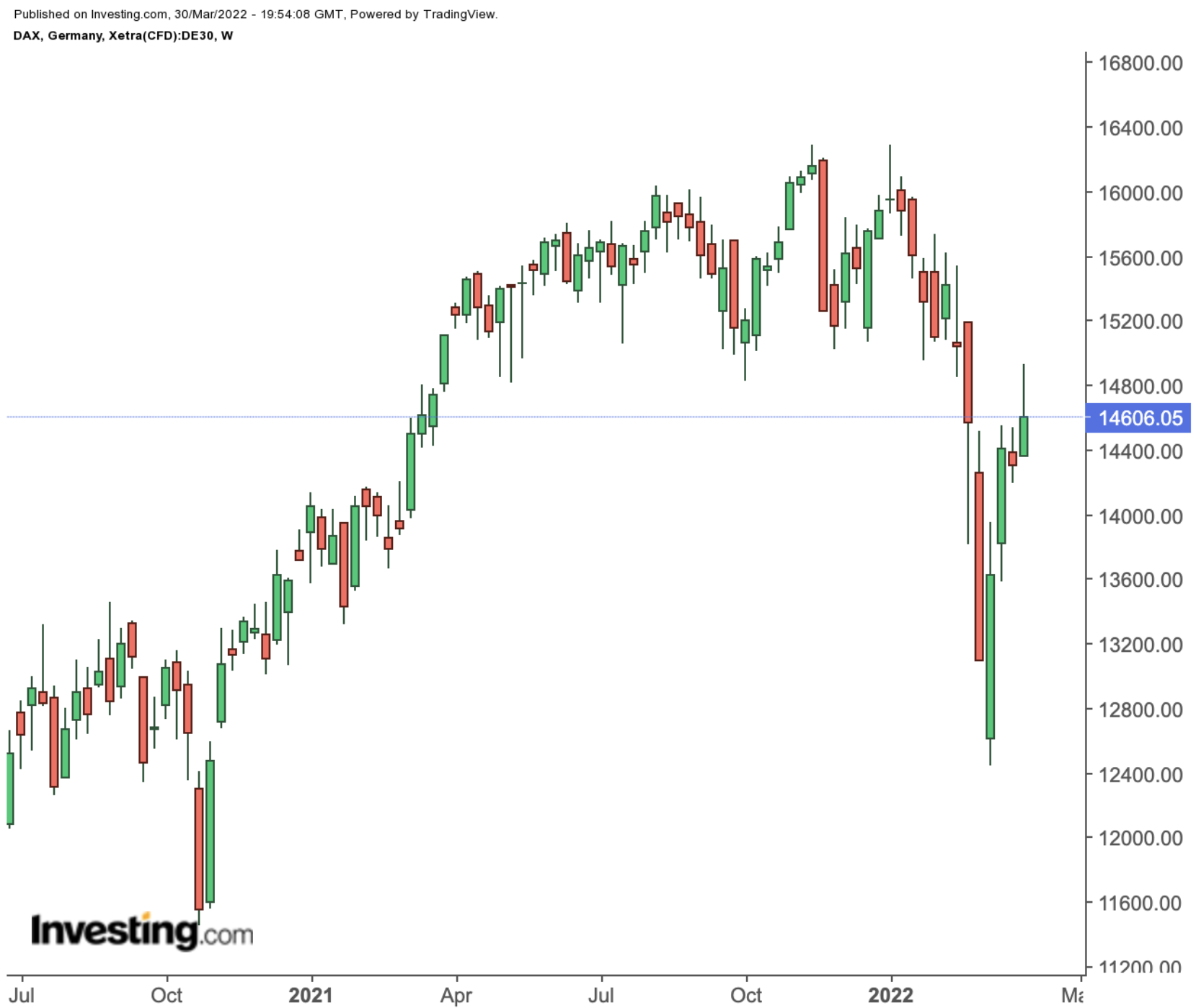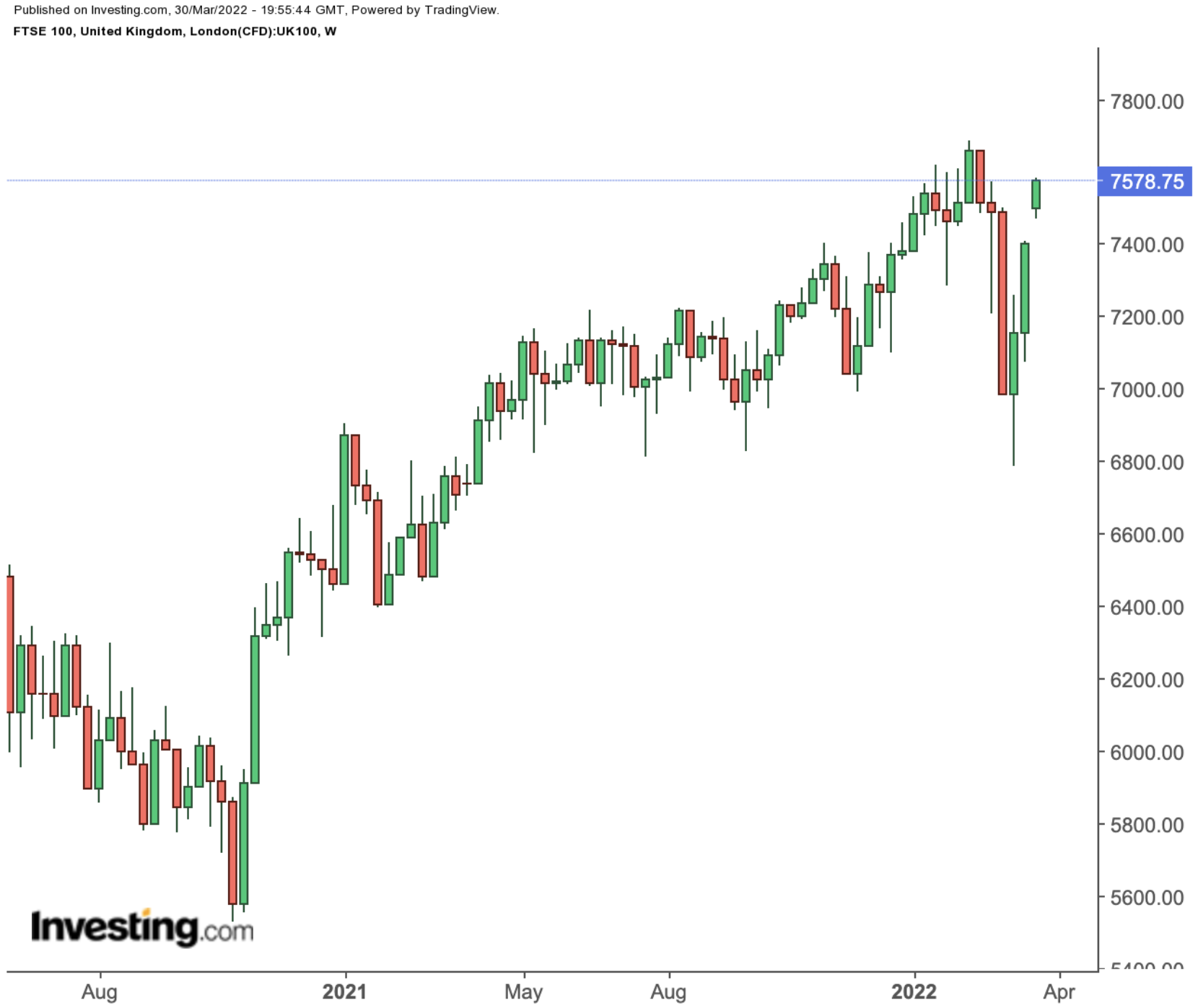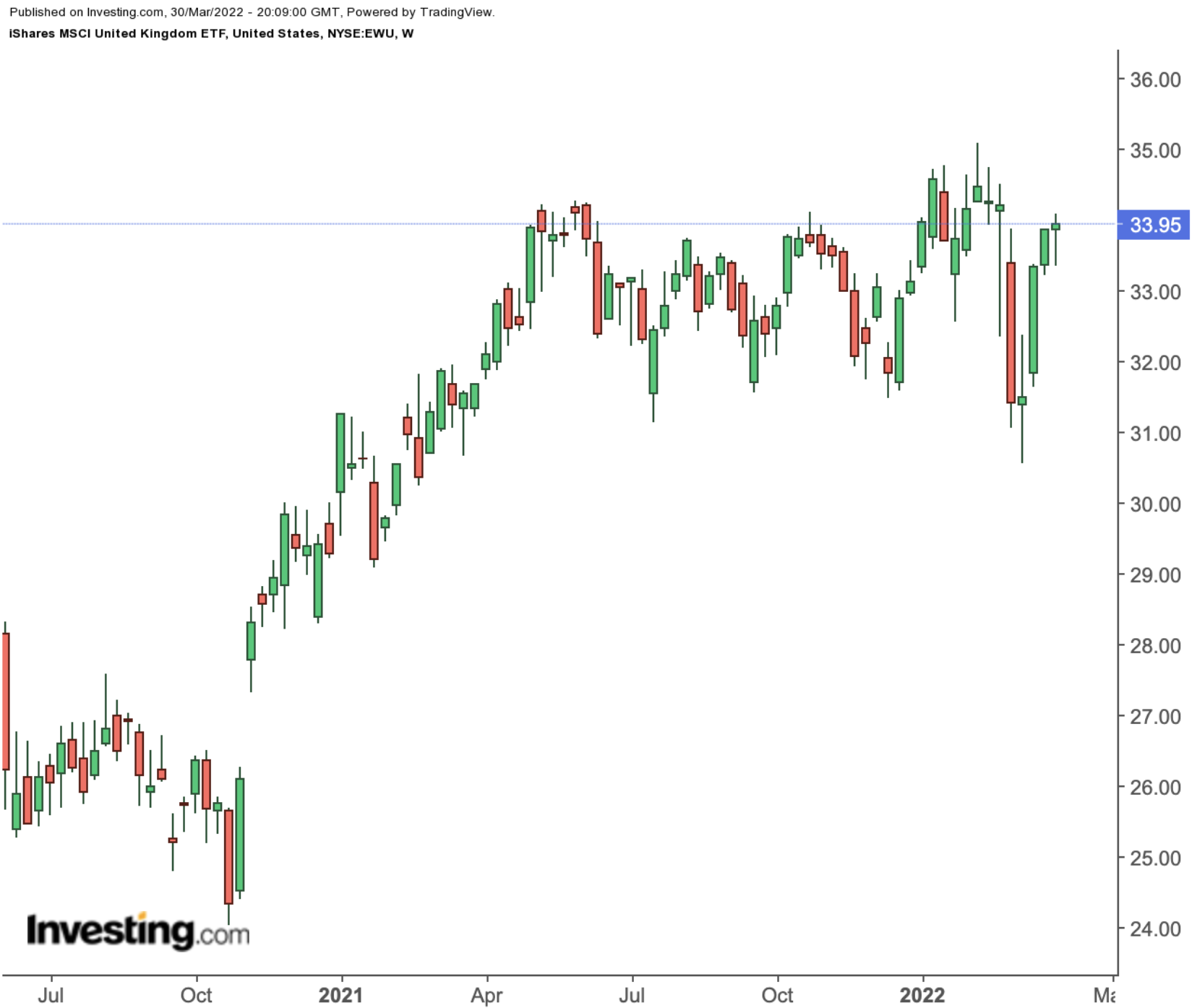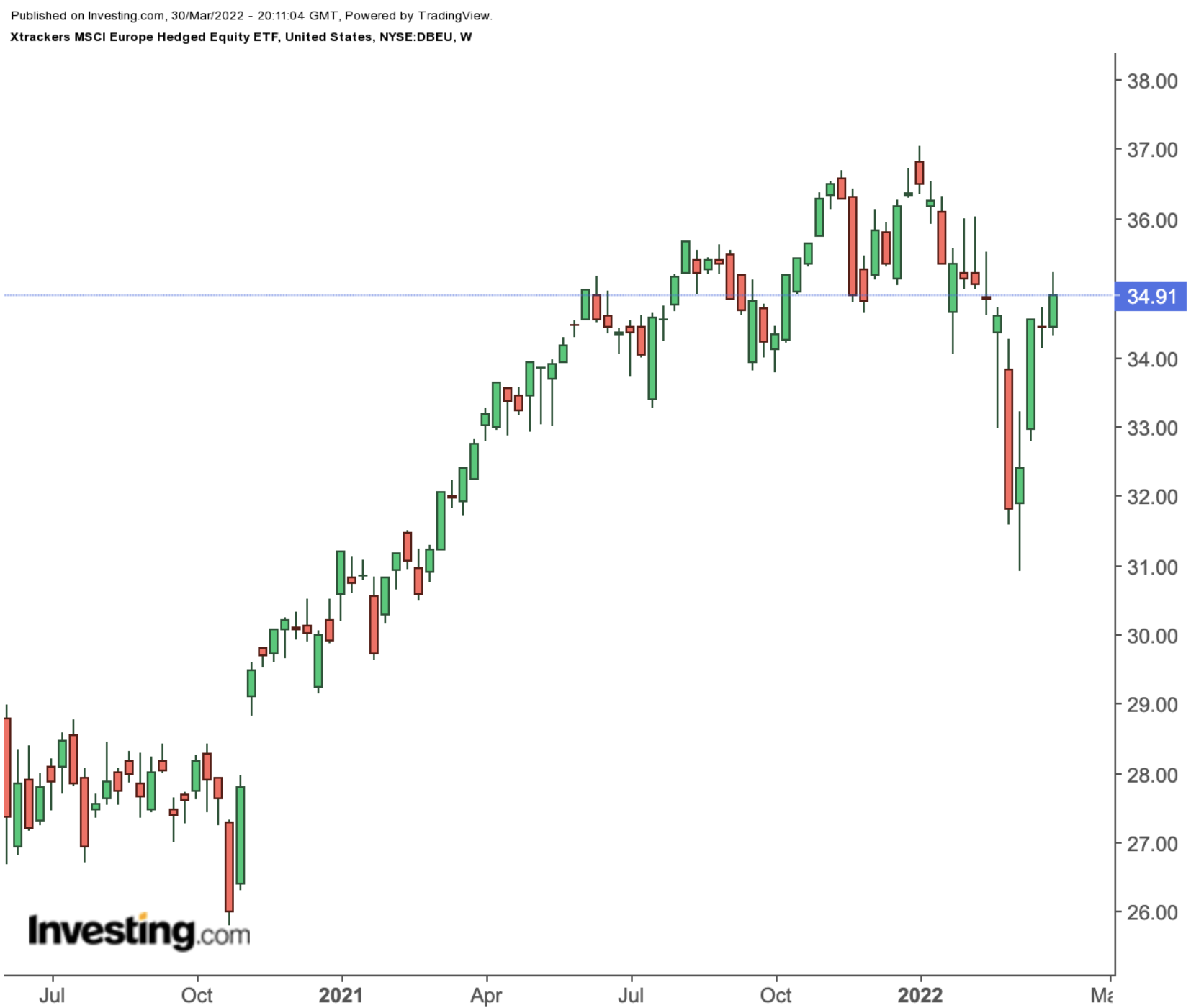Concerns over high inflation levels and the war in Ukraine have meant increased volatility for stocks on Wall Street and other exchanges around the world.
For instance, the DAX index of blue-chip German companies is down 2.8% for the past year and 8.2% year-to-date (YTD). Many regard the DAX as a proxy of the European Union (EU).

Meanwhile, the FTSE 100 index, which comprises the 100 largest names listed in the UK, is up 11% in the past 12 months and 2.1% since January 2022. Thus, so-called Footsie shares have recently shown more resilience than their EU counterparts.

Today’s article introduces two exchange-traded funds (ETFs) that deserve the attention of readers who are looking for entry opportunities into robust European stocks. In the case of improving sentiment, especially in Eastern Europe, we believe these two funds could offer value for long-term investors.
1. iShares MSCI United Kingdom ETF
- Current Price: $33.95
- 52-week range: $30.55 - $35.09
- Dividend yield: 4.24%
- Expense ratio: 0.50% per year
Our first fund, the iShares MSCI United Kingdom ETF (NYSE:EWU), currently invests in 82 stocks from the UK. The fund started trading in March 1996.

According to the British Chambers of Commerce, inflation in the UK has been taking a toll on the country's consumption:
“Consumer spending is forecast to grow at 4.4% in 2022, down from its previous forecast of 6.9%.”
Similarly, business investment is expected to grow by 3.5%, down from the earlier forecast of 5.1%. Increasing costs, higher local taxes, and the decline in public confidence as a result of inflationary pressures and geopolitical developments are behind this revision.
However, despite the grey clouds over the British economy, the FTSE 100 index is well-diversified, providing access to some of the most important companies worldwide.
In addition, most of these names pay stable dividends. Therefore, many investors regard potential declines in value as an opportunity to buy into companies listed in the UK’s leading index.
EWU tracks the returns of the MSCI United Kingdom Index. In terms of sectors, we see consumer staples (18.33%), financials (17.49%), health care (13.28%), energy (11.42%), industrials (10.85%), and materials (10.27%), among others.
The leading 10 stocks in the portfolio account for close to half of net assets of $3.62 billion, making it a top-heavy fund.
Shell (NYSE:SHEL), AstraZeneca (NASDAQ:AZN), HSBC (NYSE:HSBC), Diageo (NYSE:DEO), Unilever (NYSE:UL), GlaxoSmithKline (NYSE:GSK), and Rio Tinto (NYSE:RIO) are some of the most prominent names on the roster.
The ETF is up 2.4% YTD and 7.8% in the past year. Rising global commodity prices have especially given a boost to EWU.
P/E and P/B ratios stand at 13.74x and 1.82x. Many of the companies in EWU are likely to increase their earnings in the coming quarters. Therefore, we remain bullish on companies listed in the FTSE 100 and EWU.
2. Xtrackers MSCI Europe Hedged Equity ETF
- Current Price: $34.84
- 52-week range: $30.92 - $37.05
- Dividend Yield: 1.95%
- Expense ratio: 0.45% per year
Recent research by VoxEU—the policy portal of the Centre for Economic Policy Research (CEPR)—highlights:
“Following a strong recovery by 5.3% in 2021, we forecast the EU economy to grow by 4.0% in 2022 and 2.8% in 2023.”
In other words, the European economy is likely to recover from the effects of the pandemic in 2023. However, it is too soon to tell how the war in Ukraine will affect the regional economy.
Our second fund, the Xtrackers MSCI Europe Hedged Equity ETF (NYSE:DBEU), invests in a wide range of European equities while mitigating the effects of currency fluctuations, which could otherwise affect performance significantly. The fund began trading in September 2013, and net assets stand at $527.9 million.

DBEU, which tracks the MSCI Europe US Dollar Hedged Index, currently has 439 securities. Financials have the largest slice with 15.73%. Next come health care (14.73%), industrials (14.04%), consumer staples (12.05%), consumer discretionary (10.18%) and others.
The fund’s leading 10 stocks comprise roughly 20% of its portfolio. Among those names are Nestle (OTC:NSRGY), ASML Holding (NASDAQ:ASML), Roche Holding (OTC:RHHBY), LVMH (PA:LVMH) Moet Hennessy Louis Vuitton (OTC:LVMUY), and Novartis (NYSE:NVS).
Over 21% of the companies are based in the UK, followed by those from France (16.50%), Switzerland (15.72%), Germany (12.49%), and the Netherlands (7.99%).
DBEU hit a record high in January and returned 7.8% in the past year. However, it is down 4% YTD. Investors looking for exposure to equities from developed European markets, including the UK, should further research DBEU.
